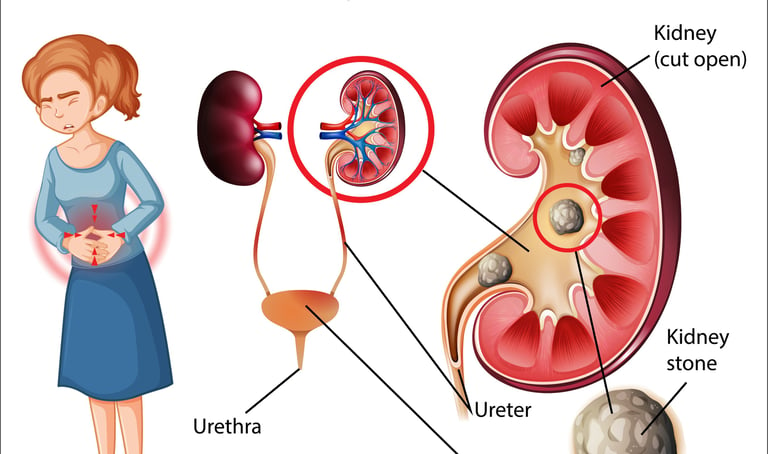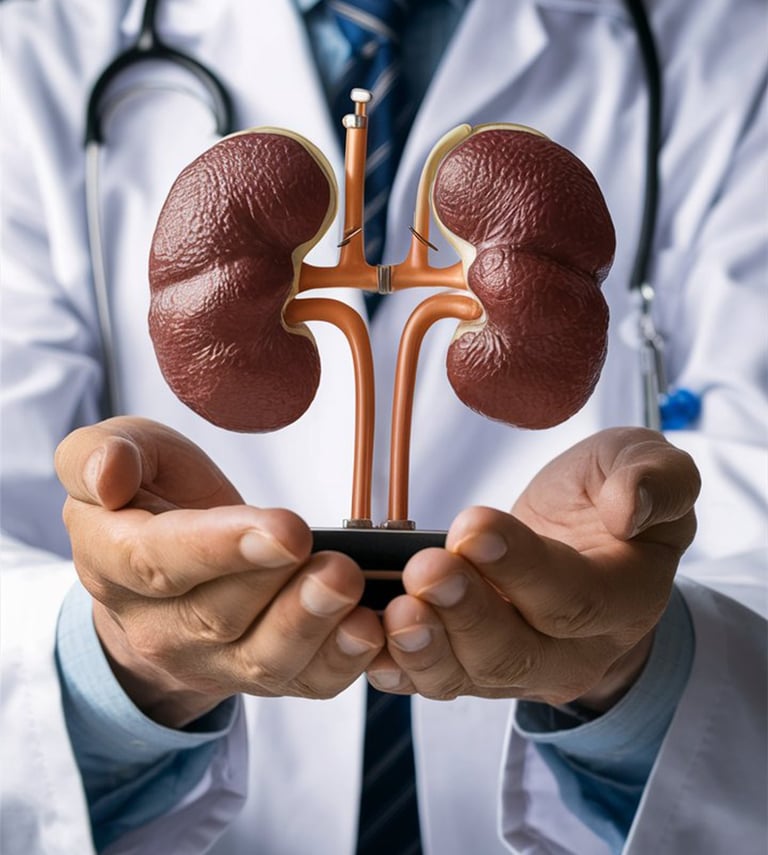Kidney Stone Management

What is Kidney Stone Management?
Kidney Stone Management refers to the medical approach used to diagnose, treat, and prevent kidney stones — hard mineral and salt deposits that form in the kidneys. These stones can vary in size and may cause pain, urinary blockage, or even kidney damage if not treated properly.
The management process begins with identifying the type and underlying cause of the stone, such as calcium, uric acid, or oxalate accumulation. It also involves relieving symptoms like severe pain or urinary discomfort, followed by helping the stone pass naturally or removing it through medical procedures when necessary. Long-term prevention focuses on lifestyle changes, including improved hydration, dietary modifications, and the use of specific medications to reduce the risk of recurrence.



Signs and Symptoms of Kidney Stones
Severe pain in the back, side, lower abdomen, or groin (renal colic)
Burning sensation during urination
Frequent urge to urinate
Blood in urine (hematuria)
Nausea and vomiting
Fever and chills (if infection is present)
Cloudy or foul-smelling urine
Some small stones may pass unnoticed, while others can cause intense pain and blockages in the urinary tract.

What is the Treatment?
Conservative Management
Increased fluid intake to help flush out small stones
Pain relief and anti-inflammatory medications
Medications to relax the urinary tract and aid stone passage
Medical Expulsion Therapy
Use of alpha-blockers or calcium channel blockers to help pass stones naturally
Medications to dissolve uric acid stones
Interventional Procedures (done in collaboration with urologists, when required)
Extracorporeal Shock Wave Lithotripsy (ESWL): Non-invasive breaking of stones using sound waves
Ureteroscopy (URS): Endoscopic removal of stones from the ureter
Percutaneous Nephrolithotomy (PCNL): Removal of larger or complex kidney stones through a small skin incision
Preventive Care
Stone analysis to determine cause
Personalized dietary and fluid recommendations
Medications to control underlying conditions (e.g., hyperparathyroidism, high uric acid)
Long-term follow-up to prevent recurrence



Why Choose Dr. Avinandan Banerjee for Kidney Stone Management?
As a trained Nephrologist, Dr. Banerjee combines expert knowledge of kidney function with advanced diagnostic tools to offer safe, precise, and long-term solutions for kidney stone care. His approach is patient-focused, minimally invasive, and preventive-driven—helping you not only get rid of stones but also avoid them in the future.


CONTACT US
For Appointment: +91 91637 18654
Mail Us: dravinandanbanerjee2024@gmail.com
Our Address:
Manipal Hospital, Kolkata
Ananda Clinic, Diamond Harbour Rd
Dr. Avinandan Banerjee
Dr. Avinandan Banerjee is a leading nephrologist with over 12 years of experience, providing expert kidney care with a compassionate approach.